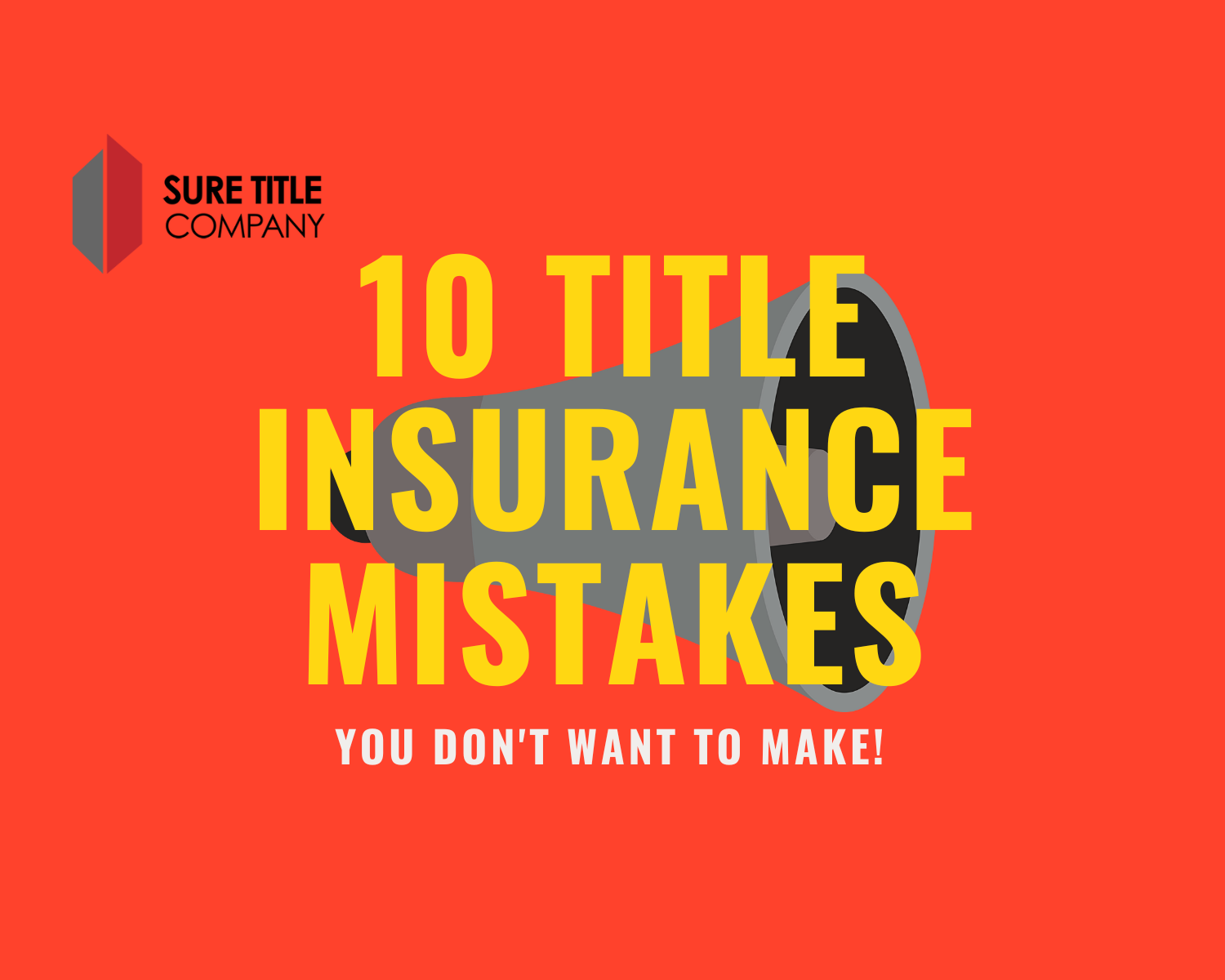

 Real Estate
Real Estate
Buying a home is an exciting process, but it can also be quite daunting. From choosing the perfect home to dealing with the paperwork, there’s a lot to consider.
One of the most important aspects of the home buying process is title insurance.
Title insurance helps protect both buyers and lenders from potential problems that can arise with a property’s title. Unfortunately, there are a few mistakes people can make when it comes to title insurance.
In this blog post, we’ll discuss 10 title insurance mistakes you don’t want to make when buying a home.
1) Not Getting Title Insurance
Failing to get title insurance is one of the most common mistakes when buying a home. Title insurance provides protection from claims against your ownership of the property due to title issues, such as liens, errors in public records, or forgery.
Without title insurance, you will be responsible for any costs associated with settling title claims. It’s important to make sure you get title insurance in order to protect your interests and investments.
2) Not Ordering a Lien Search
Ordering a lien search is among the most crucial tasks in the home buying process. Any liens that might be on the property will be thoroughly reviewed as a result of this search.
A lien search should be conducted by a reputable title company and will check local records to identify any claims against the title or the seller. This is an essential step in protecting yourself from any potential future legal issues, so it is important that you never skip out on ordering a lien search.
3) Not Knowing What Your Policy Covers
It is not enough to simply purchase a policy; you need to be sure that your policy provides adequate protection. Title insurance covers potential title issues such as liens and other legal claims against the property.
It does not, however, cover issues related to zoning laws, building codes, or environmental concerns. Make sure you read your policy carefully and ask your title insurer if you have any questions about what is covered.
4) Letting the Seller Pay for Your Policy
Make sure that you are the one paying for your title insurance policy while buying a property.
It may seem like a nice gesture if the seller offers to pay for it, but it’s important to remember that title insurance will benefit you, the buyer, and not the seller.
You don’t want to risk the seller not taking responsibility if a title defect is discovered after closing, as they won’t be responsible if they aren’t the ones who paid for the policy.
Additionally, the title insurance company may have an agreement with the buyer that any defects found will be remedied, which doesn’t apply to the seller if they pay for the policy. So to protect yourself, you should always make sure that you are the one paying for your title insurance policy.
5) Not Updating Your Policy after Closing
It is important to remember to update your title insurance policy after closing. Your title insurance policy provides protection from any existing or future claims that may arise concerning the title of your property.
Even after you have closed on the property, it is possible for new issues to arise that could affect the ownership of your home. If you fail to update your title insurance policy after closing, you may be leaving yourself vulnerable to potential legal challenges or other title disputes. Make sure to contact your title insurance provider to ensure your policy is up-to-date.
6) Not Reading Your Policy
Before signing off on your title insurance policy, it’s important to understand what it covers and the details of the transaction. Reading through your policy will help you to make sure that all of the conditions are met and that you are properly covered. If there are any inaccuracies or unclear terms, you may be able to make adjustments with your insurer before the closing. Make sure you review the fine print of your policy and ask questions so that you can be sure your title is protected.
7) Failing to Insure Against Forgery
One of the most important protections is to get title insurance which helps protect against forgery and other fraudulent activities.
Without title insurance, you may be at risk of losing the title if someone is able to commit forgery or fraud. That’s why it’s important to make sure that you have the proper coverage in place to protect your title from these types of risks.
8) Not Getting an Owner’s Policy
Owner’s policy protects you from any title issues that might arise after you close on the property, such as forgery, liens, undisclosed heirs, or deed restrictions. If you don’t have an owner’s policy and a problem does arise, you would have to take legal action and spend money out of pocket to resolve it. An owner’s policy is an important part of protecting your home and investments so make sure to get one if you’re buying a new property.
9) Not Getting a Loan Policy
A Loan Policy is a type of title insurance that protects the lender’s interest in your property. It’s important to get a loan policy when you buy a home, as it covers any potential defects that may have been overlooked or forgotten when the property was transferred from the seller to you.
It also covers losses resulting from issues with your title, such as fraud or forgery. Without a loan policy, you risk your lender having a claim against your property and could be forced to take out another loan to pay off the original debt.
10) Buying a Home without a Warranty Deed
When it comes to buying a home, there is an important document that needs to be reviewed and signed: a Warranty Deed.
This contract ensures that the seller has the authority to give the buyer ownership of the property and that the title is clear of all encumbrances.
Without a Warranty Deed, you could be taking on hidden risks and liabilities.
Conclusion: So these are some top title insurance mistakes you should avoid. Get in touch with us if you have any questions about title insurance!





Blog articles are purely for educational purposes and provides generalized information of the topic(s) covered. These articles should not be considered as legal advice.
